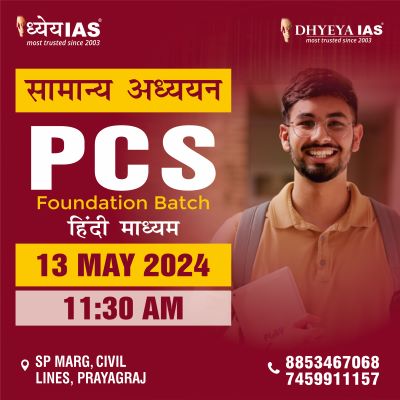Current Affairs Brain Booster for UPSC & State PCS Examination
Topic: National Agricultural Education Policy

Why in News?
- India’s first National Agricultural Education Policy is set to bring academic credit banks and degree programmes with multiple entry and exit options to the 74 universities focussed on crop sciences, fisheries, veterinary and dairy training and research.
Policy Formulation
- The Indian Council of Agriculture Research (ICAR) has formed a six-member committee headed by Dr Tej Pratap, Vice Chancellor of the G B Pant University of Agriculture in Uttarakhand to suggest ways in which agricultural institutions can be nurtured in the spirit of the NEP (National Education Policy).
- Courses offered by agriculture varsities will have a more flexible structure and these institutions will be encouraged to become inter-disciplinary as the ICAR is working to bring farm education in line with the vision of the National Education Policy (NEP) unveiled by the centre.
- Agricultural education is a state subject. Therefore, the recommendations and roadmap will be prepared in view of this. The aim is to bring agricultural education to a zone where it can address contemporary and future needs.
Aligning with NEP
- The NEP also envisages that the professional councils, such as the Indian Council for Agricultural Research (ICAR) will act as Professional Standard Setting Bodies (PSSBs) and shall be member of the General Education Council (GEC) to frame expected learning outcomes for higher education.
- The ICAR-Agricultural University (AU) system through its network of 74 universities offers degree courses at the undergraduate level in 11 disciplines. The PG programmes in 96 disciplines and Ph.D. programmes in 73 disciplines make it multi-disciplinary as desired by NEP.
- In many ways, agricultural education is ahead of its time, and already aligned with the NEP. The NEP wants a shift to four-year undergraduate degrees, and all agricultural degrees are already four-year programmes. Similarly, the NEP mentions experiential education, and they are already mandated since 2016.
New Universities
- Universities have been modelled on the land grant pattern, with a focus on research and extension, and deep community connections, driven by the philosophy that farmers need holistic solutions to their problems.
- In recent years, several domain specific universities in horticulture, veterinary science and fisheries sciences have come up.
- Challenge is to incorporate humanities and social sciences into these settings.
National Education Policy
- An NEP is a comprehensive framework to guide the development of education in the country.
- The NEP only provides a broad direction and is not mandatory to follow. Since education is a concurrent subject (both the centre and the state governments can make laws on it), the reforms proposed can only be implemented collaboratively by the centre and the states.
- The policy envisages broad based, multi-disciplinary, holistic Under Graduate education with flexible curricula, creative combinations of subjects, integration of vocational education and multiple entry and exit points with appropriate certification. UG education can be of 3 or 4 years with multiple exit options and appropriate certification within this period.
- Academic Bank of Credits to be established to facilitate transfer of credits.
- The National Research Foundation will be created as an apex body for fostering a strong research culture and building research capacity across higher education.
- Higher Education Commission of India(HECI) will be set up as a single overarching umbrella body for entire higher education, excluding medical and legal education.
- HECI will have four independent regulators-
- National Higher Education Regulatory Council (NHERC) for regulation,
- General Education Council (GEC) for standard setting,
- Higher Education Grants Council for funding and
- National Accreditation Council for accreditation.























